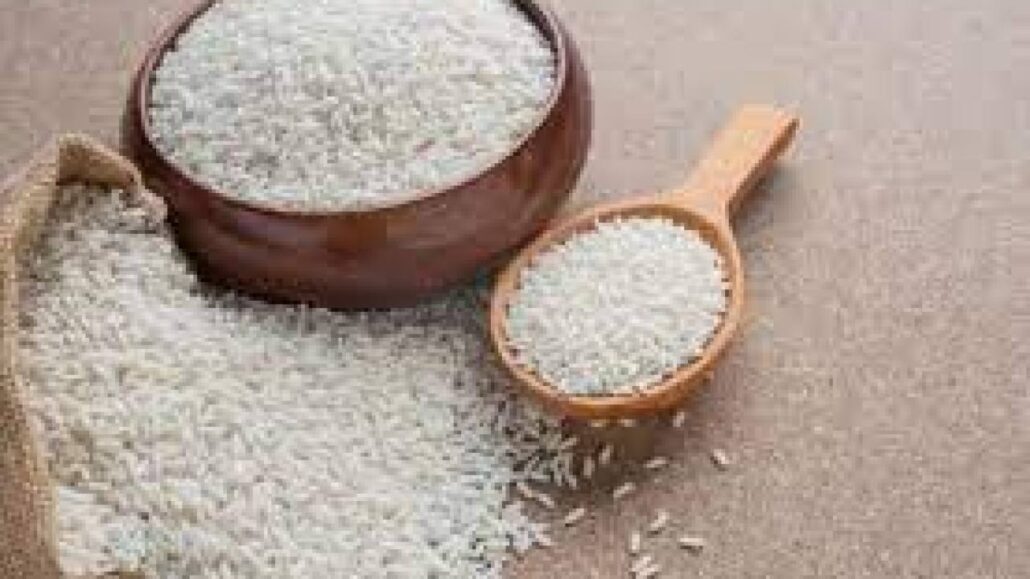
Following the successful cultivation of Mushk Budji in the Sagam belt of Kokernag tehsil, the Kamad Dialgam village in south Kashmir’s Anantnag district is poised to experience a fragrant revolution. The Department of Agriculture has established a demonstration plot in the village to cultivate this aromatic rice variety, which has shown promising results.
Mushk Budji is a traditional, short, bold, and scented rice variety unique to Kashmir. Known for its distinct aroma, Mushk Budji rice is highly coveted and comes with a GI tag that values a quintal at Rs 20,000.
An official informed the news agency—Kashmir News Observer (KNO) that the Anantnag district’s department of agriculture, with the goal of doubling farmers’ income, has taken a significant step by initiating a demonstration plot in Kamad Dialgam village for the cultivation of the aromatic rice variety, Mushk Budji which has shown excellent growth and promising yield parameters.
Kamad Dailgam village, located just 4 kilometres south of Anantnag headquarters, is a picturesque agricultural village with roughly 600 households spanning an area of two square kilometres. The village is situated in the scenic southern vista of the Pir Panjal Mountains, offering breathtaking views.
The department’s transformation of 200 hectares of land into cultivation grounds is a turning point for the village’s economic prospects, according to officials.
A farmer said he highly recommends fellow farmers to cultivate the Mushk Budji crop. He added that rice cultivation is easier compared to other crops such as apples, which takes several years for a sapling to develop into an apple-bearing tree.
“The expenses associated with labour, transportation, pesticide spraying, and marketing are also high. One quintal of Mushk Budji rice costs about 20,000 rupees, which is quite high,” he said and urged the agriculture department to assist farmers in cultivating this valuable variety as it requires the department’s intervention.
Tehseena Jan, an Agriculture Extension Assistant (AEA) from Ashjipora, expressed her optimism for the project, saying, “With 200 hectares of land in Kamad Dialgam transformed into a haven for the growth of Mushk Budji, this project is set to significantly enhance the socio-economic well-being of our dedicated farmers.”
The Chief Agriculture Officer of Anantnag, Aijaz Hussain Dar, while talking to KNO said, “The story began last year when a farmer named Ghulam Nabi Wani successfully cultivated Mushk Budji in a small area. This year, he expanded his cultivation, yielding promising results. Approximately 200 hectares of land across three adjacent villages can support this crop due to the availability of groundwater in the area. A survey by the Agriculture department is currently in progress.”
“We are working tirelessly to ensure that farmers can take advantage of this new opportunity. We are providing them with all the necessary seeds, fertilizers, and technical know-how, as well as information on how to market their crops effectively,” the officer said, adding, “Our aim is to empower farmers to become self-sufficient, as well as to contribute to the economic growth of the region.”
The cultivation of the Mushk Budji crop variety, which has a distinctive aroma and flavour, has the potential to revolutionise the agricultural industry in the region. By considering this variety as a high-value cash crop, farmers can earn more revenue, resulting in the improvement of their overall standard of living.
The agriculture officer further noted that the quality of this crop surpasses that of the Sagam belt, offering both higher quantity and better quality. “The credit for this achievement goes to Tehseena Jan, Agriculture Extension Assistant (AEA), who conducted door-to-door visits and distributed posters outlining the benefits of Mushk Budji crop variety in the village,” he said.
He said that the department is fully prepared to support the farming community in the cultivation of the Mushk Budji crop variety—(KNO)




